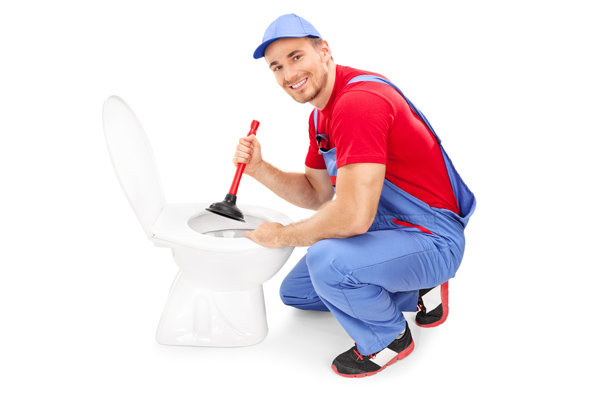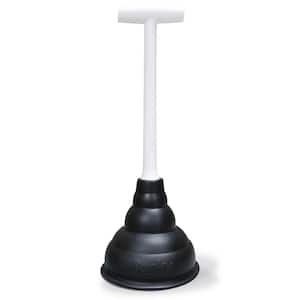Perfecting Plunger and Drain Cleaner: Key Strategies
Perfecting Plunger and Drain Cleaner: Key Strategies
Blog Article
Nearly everybody maintains their unique way of thinking on the subject of A Guide to Plungers (and How to Use Them).

Introduction
Appropriate maintenance of household drains is essential for preventing clogs and making certain smooth water circulation. One of the key devices in every house owner's toolkit is the plunger, alongside numerous drain cleaners made to deal with stubborn blockages efficiently. This write-up checks out how to utilize plungers and drain cleansers efficiently to maintain your drains streaming freely.
Section 1: Recognizing Plungers
Kinds of Plungers
There are several kinds of bettors readily available, each developed for various sorts of drains pipes and clogs. The most typical types consist of cup bettors, flange bettors, and accordion bettors.
How Plungers Job
Bettors work on the principle of creating pressure and suction to displace clogs. When correctly used over a drainpipe, they produce a vacuum cleaner that can take out debris or break up blockages.
Choosing the Right Plunger
Picking the appropriate bettor depends upon the kind of drain and the nature of the clog. Mug plungers are optimal for sinks and tubs, while flange bettors are much better suited for toilets as a result of their style.
Common Blunders with Plungers
Staying clear of these errors ensures reliable plunging: improper seal around the drainpipe, insufficient pressure, and not clearing surrounding particles.
Section 2: Making Use Of Plungers Efficiently
Prep work
Before plunging, make certain the plunger covers the drain totally and creates a tight seal. Clear any type of noticeable particles around the drainpipe opening.
Technique
Start with gentle diving movements to build suction. Increase pressure gradually, utilizing a steady rhythm. Repeat as essential until the drainpipe clears.
Troubleshooting Tips
If diving does not work, attempt changing the seal, using petroleum jelly for a better seal, or utilizing a different type of plunger.
Section 3: Comprehending Drain Cleaners
Types of Drain Cleaners
Drain pipes cleansers can be chemical or enzymatic. Chemical cleansers use strong chemicals to liquify clogs, while enzymatic cleaners make use of natural enzymes to break down organic matter.
Exactly How Drain Cleaning Company Work
Chemical cleansers react with clogs to liquify them, while enzymatic cleansers break down organic materials like hair and oil without hurting pipelines.
Safety Factors to consider
Always wear handwear covers and eye protection when utilizing chemical drain cleansers. Ensure ample ventilation and follow maker guidelines very carefully.
Eco-Friendly Alternatives
Consider utilizing vinegar and cooking soft drink or enzyme-based cleaners for green alternatives that are much safer for pipelines and the environment.
Area 4: Using Drain Cleaning Company Effectively
Application Techniques
Put chemical cleaners directly into the drain opening. Enable them to help the recommended time before purging with hot water. Chemical cleaners should sit over night.
Preventative measures
Stay clear of mixing different sorts of cleaners, as this can create toxic fumes. Never use chemical cleaners together with a plunger, as splashing can occur.
Taking Care Of Persistent Blockages
For persistent clogs, consider using a pipes serpent or calling a professional plumber to stop damage to pipelines.
Verdict
To conclude, comprehending how to make use of plungers and drain cleansers efficiently is vital for keeping healthy and balanced pipes systems. By choosing the right devices and techniques, house owners can tackle minor blockages and avoid major plumbing concerns down the line.
How To Properly Use A Plumbing Snake To Clear Drains
When any drain clogs in our home arise, we tend to gravitate toward the plunger and little else. In cases where the plunger and its vacuum-created pressure are not able to clear clogs, many immediately move to harmful chemicals or simply call their plumber to fix the issue.
we’re happy to help with all drain cleaning needs and concerns. This includes informing you on a few other home remedies you may have at your disposal for minor to moderate clogs, one of which is the use of a plumbing snake. Many people have never used one of these before – let’s go over the steps to take when your drain clogs and you have a plumbing snake available.
Attempt Plunger Use
The first step here, as we noted above, should indeed be to grab your plunger when you notice a drain clog and attempt to resolve it this way. If you’re unsure how to use a particular type of plunger, our plumbers can answer any questions you have. If this doesn’t do the trick, however, you move on to the snake.
Locate And Prepare Snake
A plumbing snake is a metal or plastic device that’s generally about a quarter of an inch thick. It’s design with significant extensions, meant to reach down into your clogged drain and push the clog out. Snakes also contain drain augers that will latch onto and push stubborn blockages.
If your plunger doesn’t clear a clog, locate your snake and bring it to the drain in question. We also recommend keeping a bucket nearby to collect the clog once you pull it out, plus we’d advise wearing goggles and possibly protective gloves.
Feed Snake
Once you’re ready to go, feed the snake slowly down the drain, using the crank device it comes with to keep it moving until it finds the clog. Once this happens, much of the clog will be latched onto the coil so you can pull it out, while the rest will simply break up and flow downward.
Detach Debris
Remove the snake slowly from the drain, and once you’ve done so, pick off any debris that’s stuck to the coil. This is another area where wearing gloves is a must.
Flush Drain
Finally, take a few minutes to ensure the snake has done its job correctly. If you’ve been using it on a toilet, flush the toilet a couple times and make sure everything flows well. If you’ve used it on a different drain, flush it with some room temperature water.
https://www.mybuddytheplumber.com/blog/how-to-properly-use-a-plumbing-snake-to-clear-drains/

Application Techniques
Put chemical cleaners directly into the drain opening. Enable them to help the recommended time before purging with hot water. Chemical cleaners should sit over night.
Preventative measures
Stay clear of mixing different sorts of cleaners, as this can create toxic fumes. Never use chemical cleaners together with a plunger, as splashing can occur.
Taking Care Of Persistent Blockages
For persistent clogs, consider using a pipes serpent or calling a professional plumber to stop damage to pipelines.
Verdict
To conclude, comprehending how to make use of plungers and drain cleansers efficiently is vital for keeping healthy and balanced pipes systems. By choosing the right devices and techniques, house owners can tackle minor blockages and avoid major plumbing concerns down the line.
How To Properly Use A Plumbing Snake To Clear Drains
When any drain clogs in our home arise, we tend to gravitate toward the plunger and little else. In cases where the plunger and its vacuum-created pressure are not able to clear clogs, many immediately move to harmful chemicals or simply call their plumber to fix the issue.
we’re happy to help with all drain cleaning needs and concerns. This includes informing you on a few other home remedies you may have at your disposal for minor to moderate clogs, one of which is the use of a plumbing snake. Many people have never used one of these before – let’s go over the steps to take when your drain clogs and you have a plumbing snake available.
Attempt Plunger Use
The first step here, as we noted above, should indeed be to grab your plunger when you notice a drain clog and attempt to resolve it this way. If you’re unsure how to use a particular type of plunger, our plumbers can answer any questions you have. If this doesn’t do the trick, however, you move on to the snake.
Locate And Prepare Snake
A plumbing snake is a metal or plastic device that’s generally about a quarter of an inch thick. It’s design with significant extensions, meant to reach down into your clogged drain and push the clog out. Snakes also contain drain augers that will latch onto and push stubborn blockages.
If your plunger doesn’t clear a clog, locate your snake and bring it to the drain in question. We also recommend keeping a bucket nearby to collect the clog once you pull it out, plus we’d advise wearing goggles and possibly protective gloves.
Feed Snake
Once you’re ready to go, feed the snake slowly down the drain, using the crank device it comes with to keep it moving until it finds the clog. Once this happens, much of the clog will be latched onto the coil so you can pull it out, while the rest will simply break up and flow downward.
Detach Debris
Remove the snake slowly from the drain, and once you’ve done so, pick off any debris that’s stuck to the coil. This is another area where wearing gloves is a must.
Flush Drain
Finally, take a few minutes to ensure the snake has done its job correctly. If you’ve been using it on a toilet, flush the toilet a couple times and make sure everything flows well. If you’ve used it on a different drain, flush it with some room temperature water.
https://www.mybuddytheplumber.com/blog/how-to-properly-use-a-plumbing-snake-to-clear-drains/

Hopefully you liked our section on How to Unclog Your Sink with a Plunger. Thanks a lot for taking a few minutes to read our piece of content. If you please pause to distribute this blog entry if you enjoyed it. Thanks for going through it.
Call Today Report this page